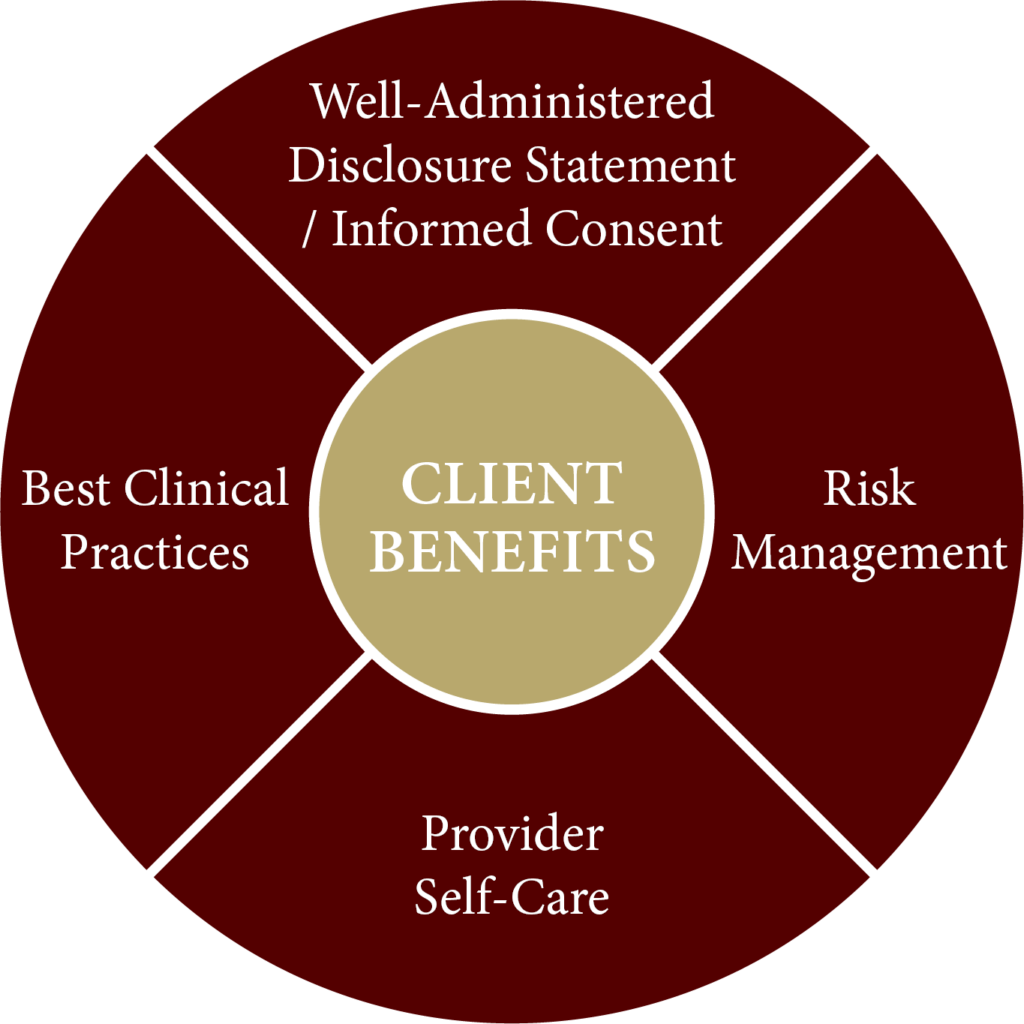The Framework
Learn about our approach.
By having a system for clear communication in place, you are caring for your clients. When clients know what they can and cannot expect from you, they are empowered to make decisions that are right for them. Clients are more likely to benefit from your services because they’ve been given the information they need to help decide whether your services present a good fit for them. The chances of misunderstandings and surprises are reduced, and your clients are better served.

Well-Administered Disclosure Statement/ Informed Consent
A Well-Administered Disclosure Statement/Informed Consent is the single most important risk management tool that you have at your disposal. ™
Clarity and transparency are key to developing trust. While having your documents in place is a good start, equally or more important is how you communicate about your practice. “Well-Administered” means that you take the time to talk with your clients about your practice and policies, and to make sure they – and you! – understand how this content might apply. Circle back to key aspects of the disclosure, as needed, throughout service delivery. A well-administered consent helps maintain boundaries and avoid surprises, thereby preventing ruptures to the therapeutic alliance.
Best Clinical Practices
Optimal clinical care requires that you practice within your bounds of competence and that your services reflect best practices. “Best practices” may be informed by evidence-based treatments, professional guidelines, or approaches that are well-regarded and recognized in your field. We are not here to tell you what those best practices are, because those will depend on your discipline, professional community, and your jurisdiction. But we like to highlight this underlying principle as integral to our risk management framework.
Risk Management
You’ve no doubt put years of hard work into developing your clinical expertise, but there are scenarios where even the most skilled practitioner can get derailed by unexpected snags. We have found that providers who are interested in what we offer have highly developed expertise and clinical skills, and are looking to increase their knowledge base about best risk management practices.
Provider Self-Care
Feel safe doing the work you love. Risk management is a form of self-care. Nobody wants to be thinking about a client-related dilemma at 3 o’clock in the morning. When your consents are comprehensive, we believe it can favorably impact how you run your practice. You will have clarity about the choices available to you when you handle various scenarios as they arise. We have found that applying The Framework is a form of both self- and client-care as it reduces the risk of ruptures and the stress that goes with these challenges.